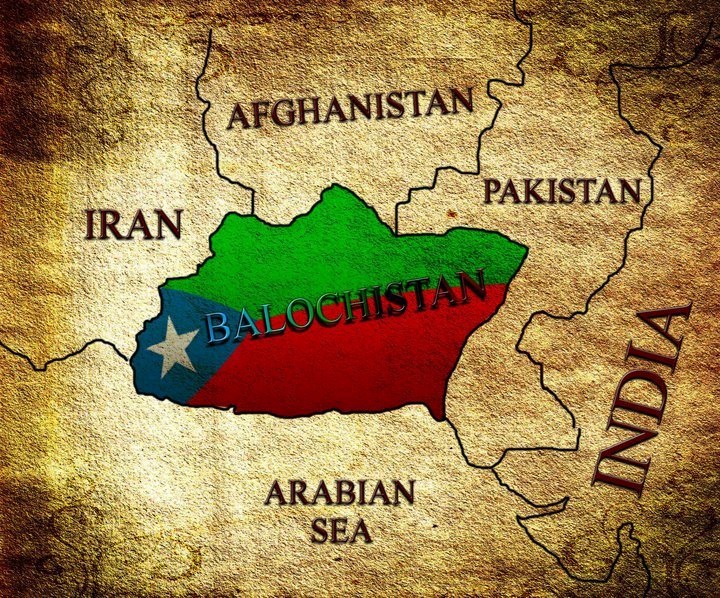Balochistan, a region rich in natural resources and cultural heritage, has long struggled for autonomy and self-determination. Divided among Pakistan, Iran, and Afghanistan, the Baloch people face a complex web of historical grievances and contemporary challenges rooted in colonial legacies. Each state views Balochistan through its own political lens, leading to a diverse yet interconnected struggle for independence that transcends national borders. This article aims to analyse the Baloch struggle in these three contexts, examining the socio-political dynamics that shape their quest for liberation. By exploring the historical injustices, economic exploitation, and cultural repression faced by the Baloch, we can better understand the resilience and unity that define their ongoing fight against modern colonialism.
The Baloch Struggle in Pakistan
The struggle for Baloch independence in Pakistan is deeply rooted in historical grievances and ongoing oppression. Following Pakistan’s annexation of Balochistan in 1948, the Baloch people were thrust into a state of colonial subjugation. The Pakistani government’s persistent view of Balochistan as a resource-rich territory to exploit has fueled resentment among the Baloch population. This perception has led to systematic human rights violations, characterized by militarization and repression.
The state’s military approach has transformed Balochistan into a heavily monitored zone, where dissent is met with brutal force. The infamous “kill-and-dump” policy underscores the extent of state-sponsored violence aimed at suppressing Baloch voices. This policy serves not only to eliminate active resistance but also to instill fear within the community, thereby discouraging any form of dissent.
Economically, Balochistan’s resources—minerals, oil, and gas—are siphoned off to benefit the political and economic elite of Punjab and Sindh, leaving the Baloch people in a state of poverty and underdevelopment. This economic marginalization mirrors colonial extraction practices observed in other parts of the world, where local populations are denied the benefits of their own resources.
The Baloch struggle for resistance has evolved to include armed struggle as a prominent response to the systemic oppression and marginalization faced, reflecting a significant shift in the fight for autonomy. Armed struggle emerges as a viable option due to the diminishing space for ground politics and the perception that peaceful avenues have been obstructed by state repression. Concurrently, political activism remains a vital aspect of the resistance, playing a crucial role in raising awareness and advocating for Baloch rights on both national and international platforms. The interplay between armed struggle and political activism illustrates the complexity of the Baloch struggle, revealing a society grappling with the duality of seeking justice through both confrontation and negotiation. However, the militarization of the Baloch movement complicates its portrayal on the global stage, often leading to misconceptions that conflate legitimate aspirations for independence with perceptions of terrorism. Beneath this veneer of conflict lies a profound desire for justice and recognition, as the Baloch seek to dismantle the structures of colonial exploitation that have long denied them their rightful place in the world.
The Baloch Struggle in Iran
In Iran, the Baloch people inhabit the Sistan and Baluchestan province, where they face socio-economic neglect and cultural repression. The Iranian state’s policies towards the Baloch have historically been characterized by discrimination and efforts to assimilate them into the dominant Persian culture. This marginalization manifests in various forms, including restrictions on using the Balochi language and a lack of investment in infrastructure and education.
The Iranian government’s response to Baloch activism is often violent. Activists advocating for Baloch rights face arbitrary detentions, torture, and execution, further exacerbating the socio-political climate in the region. The lack of political representation and the absence of meaningful dialogue between the Baloch and the Iranian state fuel discontent and push many towards radicalization.
Despite these challenges, the Baloch in Iran continue to resist. Their struggle is characterized by a quest for cultural recognition and socio-economic equity. The desire to preserve their unique identity while demanding basic rights highlights the complexity of their struggle, which intertwines issues of ethnicity, nationalism, and economic justice. Altogether independence and struggle for decolonization is the only option remains.
The Baloch Struggle in Afghanistan
In Afghanistan, the Baloch are concentrated primarily in the southwestern provinces of Nimroz and Helmand. Historically, the Afghan state has prioritized other ethnic groups, leaving the Baloch marginalized and underrepresented. Their socio-economic conditions are dire, with limited access to education, healthcare, and infrastructure development.
The struggle in Afghanistan differs in its approach compared to Pakistan and Iran. While there are calls for greater recognition and rights, the Baloch resistance is less militarized. The socio-political environment in Afghanistan complicates the Baloch struggle, as internal divisions among various ethnic groups often overshadow their plight. Nonetheless, the Baloch continue to assert their identity and demand recognition, broadly seeking the sovereignty of their own.
Despite the distinct political contexts of Balochistan in Pakistan, Iran, and Afghanistan, several common threads emerge in their struggle for independence. At the core of this movement is a profound sense of injustice stemming from historical grievances and ongoing colonial practices. The Baloch people across all three states share a collective aspiration for self-determination, cultural preservation, and economic equity.
The international community’s response to the Baloch struggle has often been muted, contributing to the perpetuation of their plight. Recognizing the legitimacy of their independence movement is crucial in supporting their quest for justice and human rights. This recognition must be accompanied by a commitment to hold oppressive states accountable for their colonial practices.
The Baloch struggle for independence transcends national borders, embodying a broader fight against colonialism and for self-determination. The complexities of their struggles in Pakistan, Iran, and Afghanistan underscore the need for a nuanced understanding of their grievances and aspirations. As the Baloch continue to resist oppression and assert their identity, the hope for a future free from colonialism remains a powerful motivator for their movement.
The path towards decolonization is fraught with challenges, but the Baloch people’s unwavering commitment to their cause offers a glimpse of hope for a future where they can reclaim their land, resources, and identity as an independent nation.

